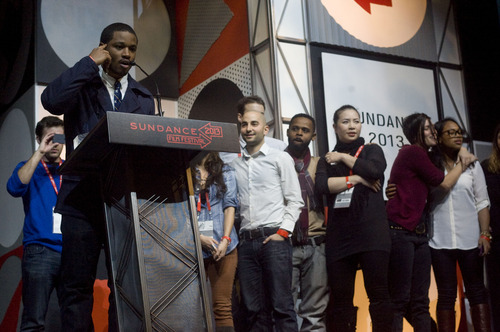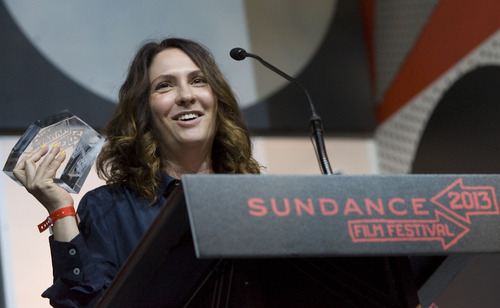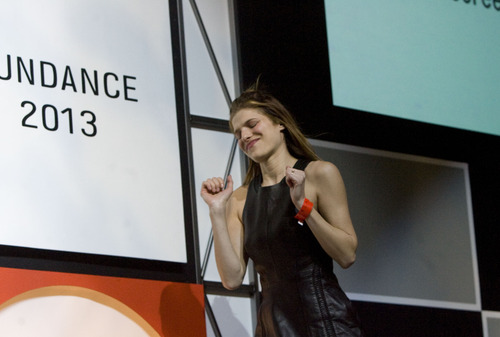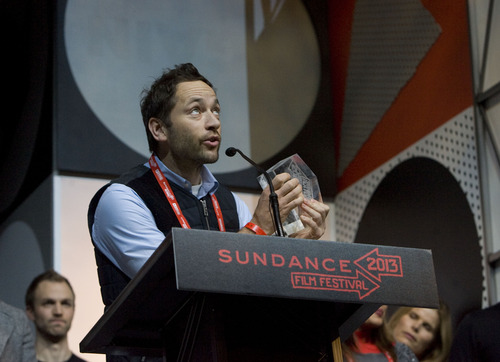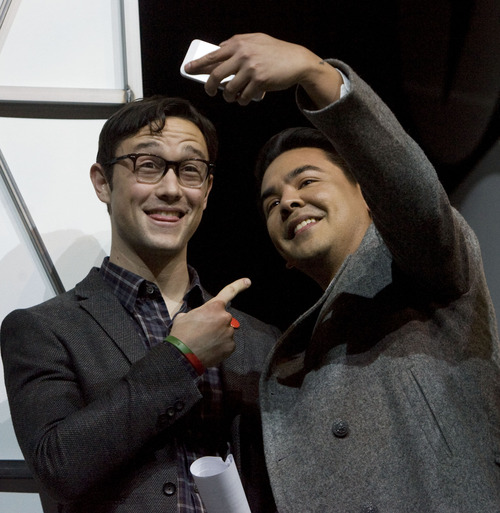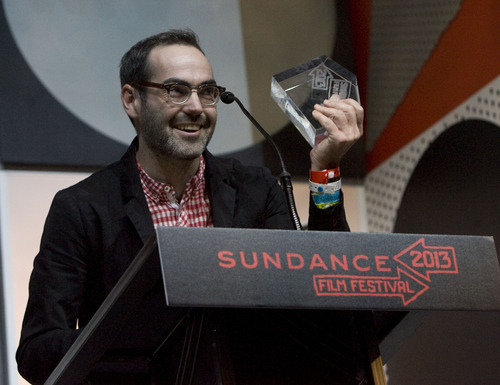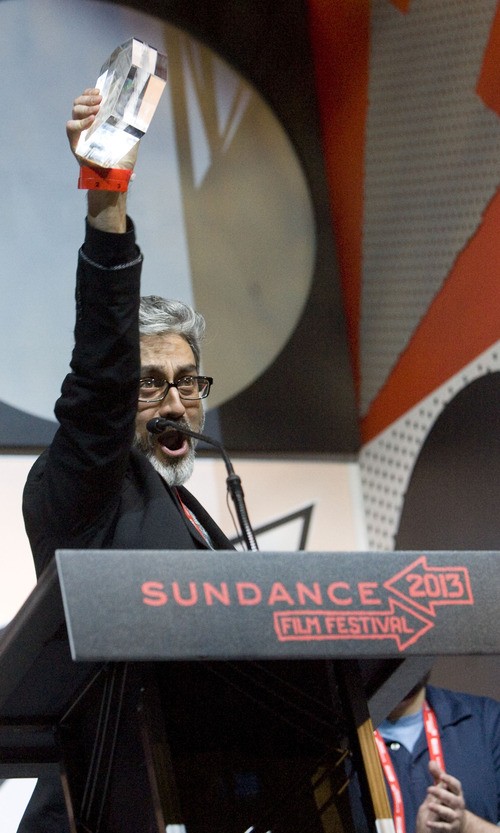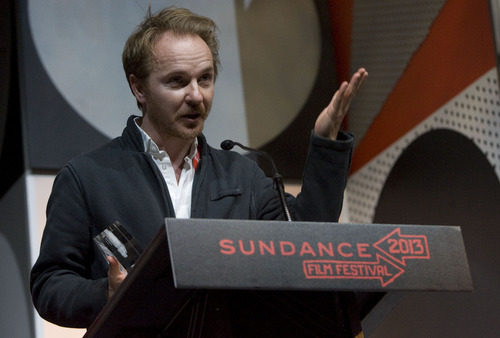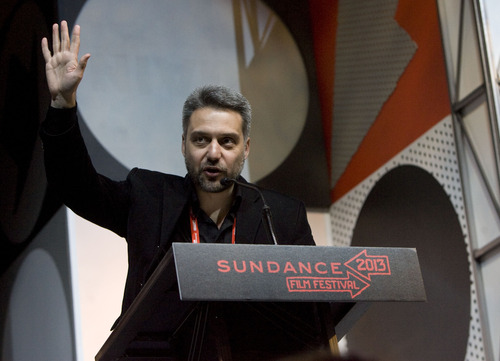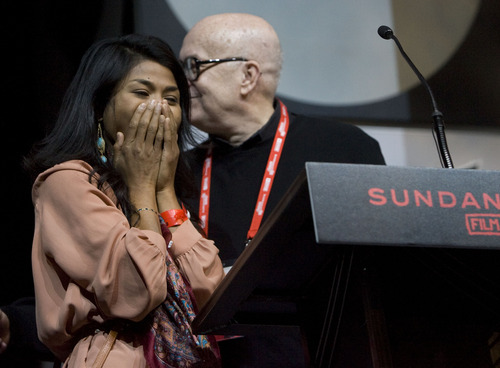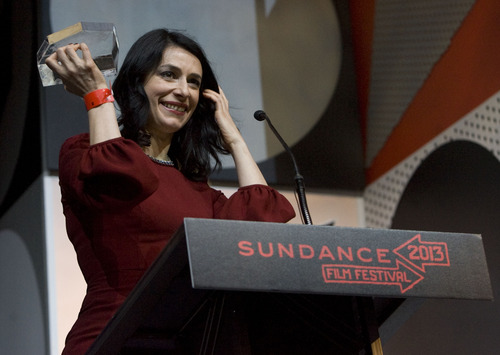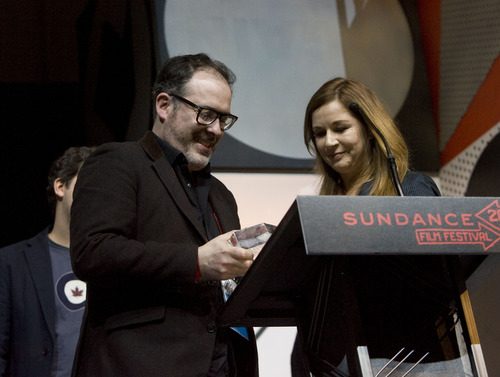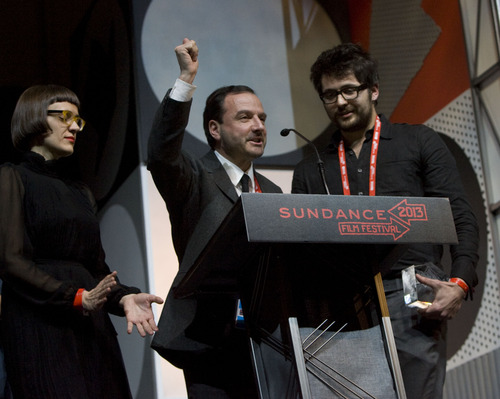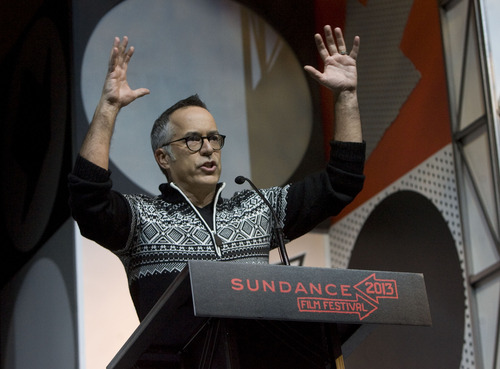This is an archived article that was published on sltrib.com in 2013, and information in the article may be outdated. It is provided only for personal research purposes and may not be reprinted.
Park City • A young black man whose life ended too soon and Indian children whose lives are being cut short by AIDS were prominent in the big award winners Saturday night at the 2013 Sundance Film Festival.
Writer-director Ryan Coogler's "Fruitvale" won both the Grand Jury Prize and Audience Award in the U.S. Dramatic competition. The film is a gritty portrayal of the last day in the life of Oscar Julius Grant III, a 22-year-old Oakland resident shot to death by a Bay Area Rapid Transit policeman on New Year's Day 2009 — an incident that brought national focus to racial tensions in the San Francisco area.
In his acceptance speech, Coogler gave thanks to the Bay Area, "where Oscar Grant lived, breathed, slept, loved, and survived for 22 years."
Coogler also praised the Sundance Institute, which nurtured the film through its Filmmakers Lab programs and at the festival. He singled out the other directors he met at the labs and this week in Park City.
"We formed crazy relationships through those labs, crazy relationships at this festival," Coogler said. "I hope to keep in touch with those directors for the rest of my life."
"Blood Brother," director Steve Hoover's intimate look at his friend Rocky Braat's volunteer work in an Indian orphanage for HIV-infected children, also made the rare double-shot — taking both the Grand Jury Prize and the Audience Award in the U.S. Documentary competition.
"It is so encouraging for the kids," Braat said from the podium. "Their lives are so challenging. They die and no one remembers their names."
Hoover also said proceeds from the film will go to help the kids Braat works with in India. "I can't wait to see the difference we can make in the world doing this," Hoover said.
Grand Jury Prize winners in the World Cinema categories were: The South Korean drama "Jiseul," about island residents forced to relocate; and the Cambodian-made documentary "A River Changes Course," which shows the lives of peasants dealing with overfishing, deforestation and the global economy.
The World Cinema Audience Awards went to the Filipino urban drama "Metro Manila" and the documentary "The Square," which followed the lives of protesters in Egypt's "Arab Spring" protests.
The Directing Award in the U.S. Documentary category went to Zachary Heinzerling for "Cutie and the Boxer," a fond portrait of "action painter" Ushio Shinohara and his wife Noriko, an artist coming into her own.
Comedies directed by women won big at Saturday's awards ceremony. Jill Soloway won the U.S. Dramatic directing prize for her sexually charged suburban comedy "Afternoon Delight." And director-writer-star Lake Bell won the Waldo Salt Screenwriting Award for "In a World…," a sharp comedy about a woman voice-over artist trying to break through in a male-dominated business.
Soloway praised the woman directors in the U.S. Dramatic competition, who represented eight of the 16 films in the category.
"I feel like we all walked across the street here holding hands," Soloway said.
Bell joked that her "voice is cracking. I guess I'm going through puberty as well." Bell thanked Sundance "for giving me the continued encouragement to have the balls to do this."
Comedies scored at Sundance in another way. They landed deals with distributors.
Movies such as competition entry "Austenland" and Premieres films "The Way, Way Back" and "Don Jon's Addiction" (directed by Joseph-Gordon Levitt, who was the awards-night emcee) all left Sundance with seven-figure deals.
All the award winners will get to take one more bow at screenings in Park City on Sunday, the festival's final day.
Twitter: @moviecricket


